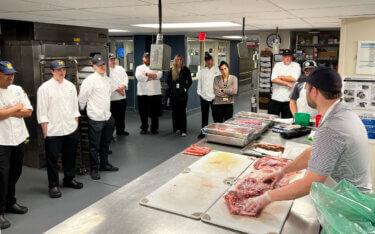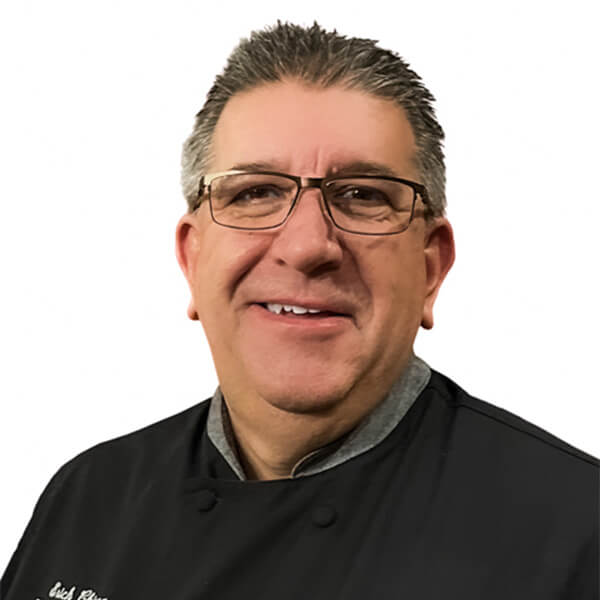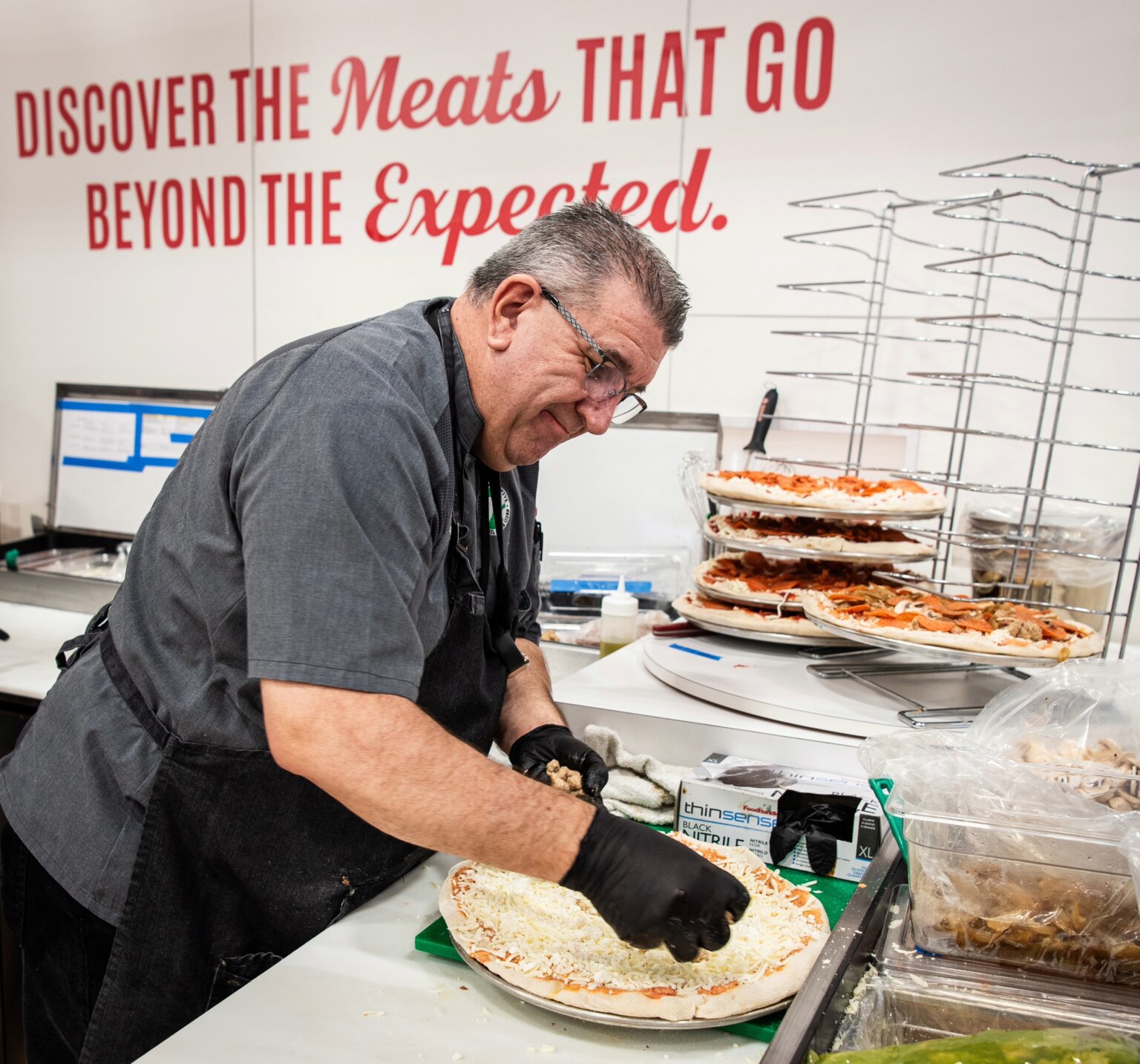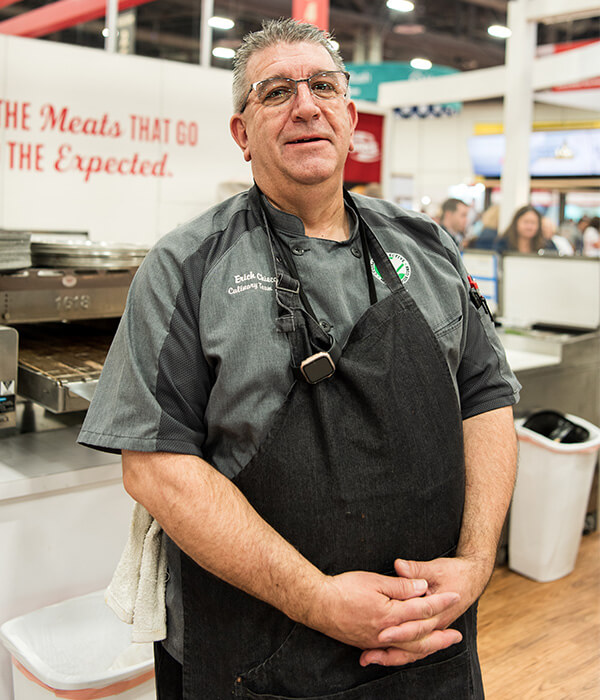“It’s not only about food. It’s about the business end of food,” Chieca explains. Watching chefs present their creations and offer feedback to classmates created an environment where vulnerability and learning walked hand in hand. For Chieca and the other accomplished chefs, it provided an opportunity to step away from corporate responsibilities. “To actually get your hands busy and work with a group of your peers is an absolute blast. In this business, it’s important to never stop learning.”
Relationship building is as valuable as the curriculum. “You want to talk about building relationships in an intimate setting; this is an absolutely fabulous way to do it,” notes Chieca. These connections foster partnerships that enhance operations and drive innovation.
Phyllis Kaplowitz, campus executive chef at Boston College who manages 23 dining establishments with staff from 47 countries, participated in this year’s program. “I haven’t worked on this level with peers like this before. The Napa program was the beginning of a life-changing experience.”
Kaplowitz similarly partnered with the Culinary Collective to add new items to the Boston College menu. “We did a ‘Cluck Cluck Pop Up’ featuring three different fried chicken sandwiches using Hormel’s new FLASH 180™ Sous Vide Chicken, which we now use in all our units.”
Trusted relationships, chef-to-chef collaboration and a focus on practical problem-solving are redefining leadership in foodservice today. Hormel Foods sits at the intersection of this change, supporting its own culinary team while building bridges with chefs and institutions.





